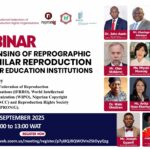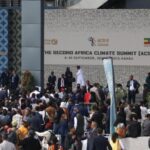The European Union (EU) has launched a €5.1 million peace-building programme targeting conflict-ravaged communities in Zamfara and Katsina states, where ongoing violence has forced school closures and displaced thousands of farmers from their lands.
Thank you for reading this post; don't forget to subscribe to our YouTube channel here!
The 18-month initiative, officially inaugurated Monday by the International Organisation for Migration (IOM), aims to reach 95,000 people across 10 local government areas worst hit by insecurity in Nigeria’s northwest region.
The “Conflict Prevention, Crisis Response and Resilience in Katsina and Zamfara States (CPCRR)” programme is a comprehensive approach to addressing underlying conflict drivers rather than merely responding to violence after it occurs.

“It means creating local peace committees so disputes can be solved around the table, not through violence,” the IOM Nigeria Chief of Mission, Ms Dimanche Sharon, explained. “It also means restoring livelihoods through skills training, farming support and small businesses, so young people and women can build their futures free from fear.”
The programme will be implemented by IOM in partnership with Mercy Corps and the Centre for Democracy and Development (CDD), focusing on displaced persons, returnees and host communities in eight Katsina local government areas and two in Zamfara.
Governor Dikko Radda of Katsina State described the initiative as bringing “a new era of hope and development” to regions where conflict has devastated basic services and economic activities. He noted that security challenges had forced school closures and driven farmers from their lands, particularly in frontline local government areas.
The governor noted that addressing the crisis requires sustained commitment from government and stakeholders, commending the EU for designing a project specifically aimed at tackling these complex challenges.
European Union Ambassador to Nigeria Gautier Migno reaffirmed the bloc’s commitment to Nigeria’s peace and development, highlighting how the EU has intensified support across multiple sectors, including education and energy.
The ambassador stressed the importance of ensuring women and people with disabilities are central to peace-building processes, reflecting international best practices for sustainable conflict resolution.
The programme’s approach centres on building local capacity for conflict prevention while simultaneously addressing immediate humanitarian needs. By combining peace committee formation with livelihood restoration initiatives, the project seeks to transform community resilience into lasting stability.
Follow the AkweyaTV channel on WhatsApp: http://bit.ly/3I7mQVx







